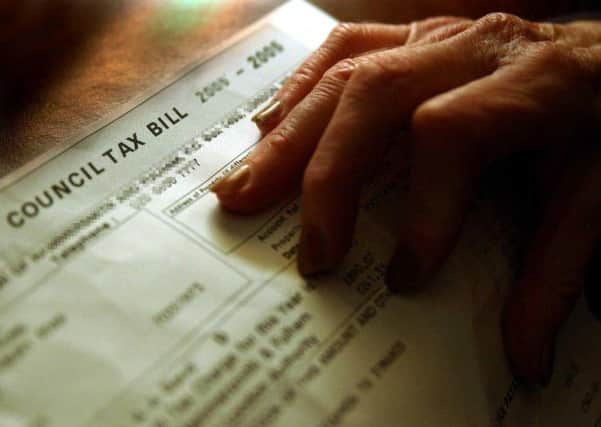Half your council tax will go on ‘social care’


The Local Government Association today warns that by 2019, around 60p of every £1 council tax will be spent on services for vulnerable children and adults, up from 41p in 2010/11.
Street cleaning and flood defences will account for just 1p of every £1 if cuts in central government funding continue at a similar level to the last five years, according to forecasters, and 5p will be spent on road maintenance and street lighting.
Advertisement
Hide AdAdvertisement
Hide AdLocal authorities are also likely to have just under 5p for services such as libraries, leisure centres, parks and the arts as they grapple with the pressures of an ageing population, the LGA says, unless there are significant changes to council tax.
“This analysis shows the pinch that families all over the country will feel from central government continuing to reduce funding for local services,” said chairman David Sparks. “It is likely that people will be paying similar levels of council tax over the next few years but most will see a lot less in return.
“People are rightly going to question why their streets and parks are less well kept, the local library is closing and bus services are being cut when they are still paying roughly the same council tax each month. Within a few years, well over half of the council tax everyone pays will have to be spent on social care.”
It comes as Care UK highlights the plight of the increasing number of people thought to save councils and the NHS millions of pounds every year by looking after older, sick or disabled loved ones.
Advertisement
Hide AdAdvertisement
Hide AdResearch from the charity has revealed that seven in 10 carers who combine their responsibilities with a job have felt lonely or isolated in the workplace.
Chief executive Helena Herklots said: “Business, government and society have a role in supporting those who are managing work alongside caring for someone.”
Councils and campaigners have already called for more money from central government to address chronic underspending on social care and the LGA’s Future Funding campaign uses the analysis to call for local government funding to be protected in the next parliament. Mr Sparks said: “If the services which underpin people’s daily lives are to survive the next few years, the next government must provide fair funding and give local authorities the freedom required to pay for them.”